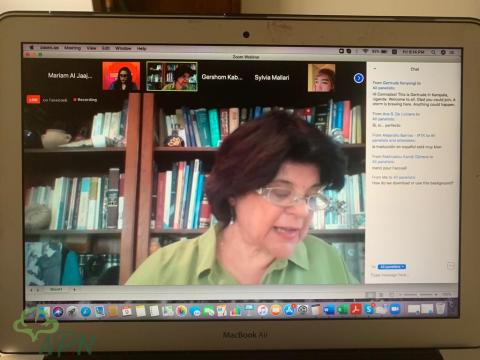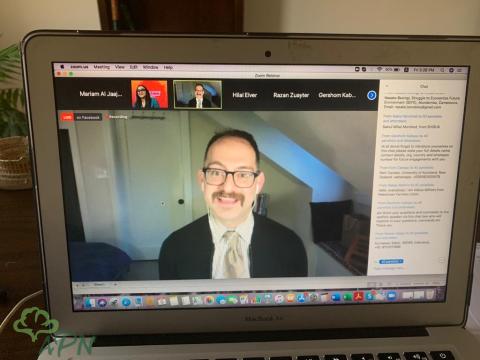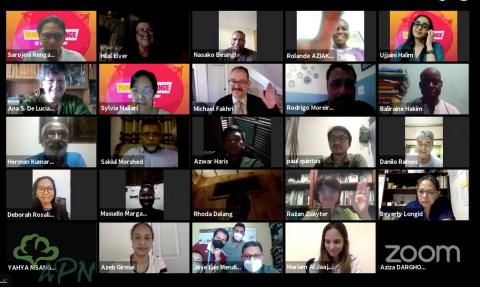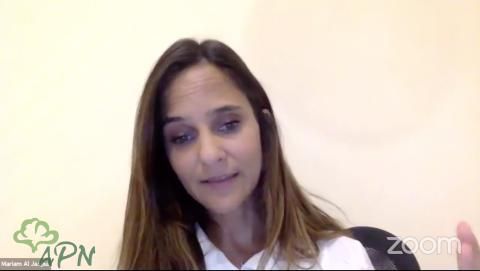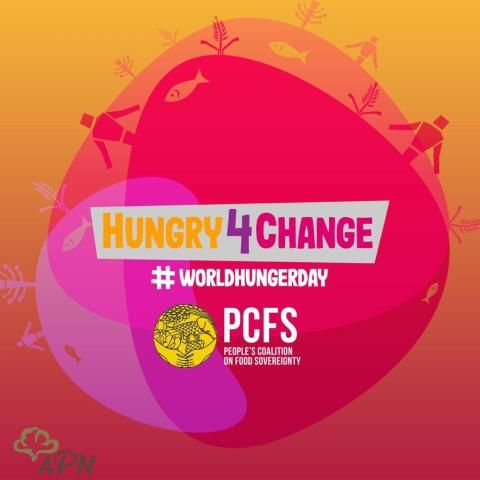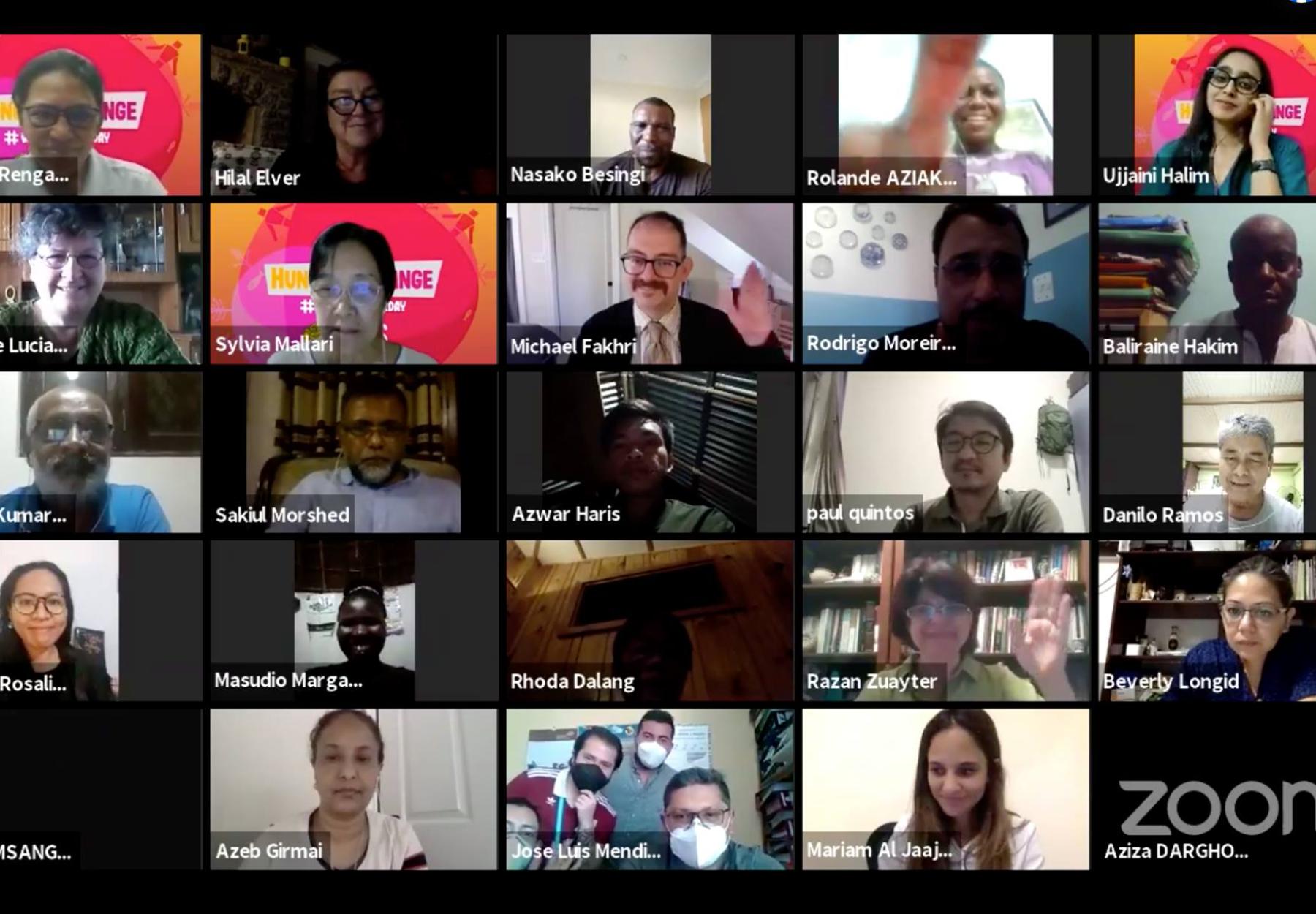
The People's Coalition on Food Sovereignty (PCFS) held a webinar to communicate the demands and recommendations of rural communities in addressing food crises in the world (October 9, 2020). UN Special Rapporteur on the right to food Michael Fakhry and the previous Rapporteur Hilal Elver (2014-2020) attended the webinar. The webinar also included 12 specialists representing the agricultural sector, agricultural workers, rural women, fishers, and indigenous peoples and 100 other professionals from different countries and regions.
The webinar was held by PCFS on the occasion of World Food Day (World Hunger Day) as part of the Hunger 4 Change campaign to protest unfair and unsustainable global food systems.
APN Chairperson of the Board and ANFS President Razan Zuayter delivered the opening notes at the webinar. She called for working at an international level based on common concerns and grievances. She also noted that unified action would make a difference and influence food policies in the world.
Zuayter explained that the webinar would strengthen solidarity among popular organizations, unite voices calling for reforms in global food systems, expose the opportunism of neoliberal companies, and demonstrate the struggles of rural people. She expressed hope that the demands with reach the participants of the upcoming UN Food Systems Summit (FSS) in 2021.
UN Special Rapporteur on the right to food Michael Fakhry said that his priorities are promoting ecological agriculture, establishing the right of access to resources for farmers, especially seeds, and working to prevent food from being used as a weapon in crises and wars.
Fakhry thanked PCFS for being bold and speaking up about the impact of colonialism and imperialism on food at a time when other organizations are silent. He also stressed that Palestine should remain a priority issue and he draws parallels between it and other struggles around the world. He also said that when discussing Israel globally, we must make sure to describe it as a settler-colonial state.
APN General Manager Mariam Al Jaajaa said that it was necessary to provide unconditional food aid to countries in crisis. She continued to say that the percentage of food aid has increased during the COVID19 pandemic given the urgent need for it but that it is being used as a tool to pressure countries and their people. She added that since 2018, most humanitarian aid has decreased by an estimated 77%, while the world has witnessed a steady increase in military aid.
Al Jaajaa added that aid does not go to the most marginalized and impoverished countries. She went on to discuss Palestine as an example, especially concerning recent developments at UNRWA and the U.S. proposed Deal of the Century. While aid from the U.S. flows into Israel, the EU has recently requested Palestinian NGOs not to provide humanitarian support to family members of those who belong to popular movements.
She also discussed a demand to lift sanctions against countries because collective punishment violates international law, mentioning Yemen, Sudan, Zimbabwe, Iran, Syria, North Korea, Cuba, Venezuela, and Bolivia, all of which are subjected to unjust blockades, to include Gaza, which has been under an Israeli blockade for 13 years.
Al Jaajaa noted that the Israeli occupation is exploiting the world's preoccupation with COVID19 to continue settlement activity and the targeting of resources and lands.
